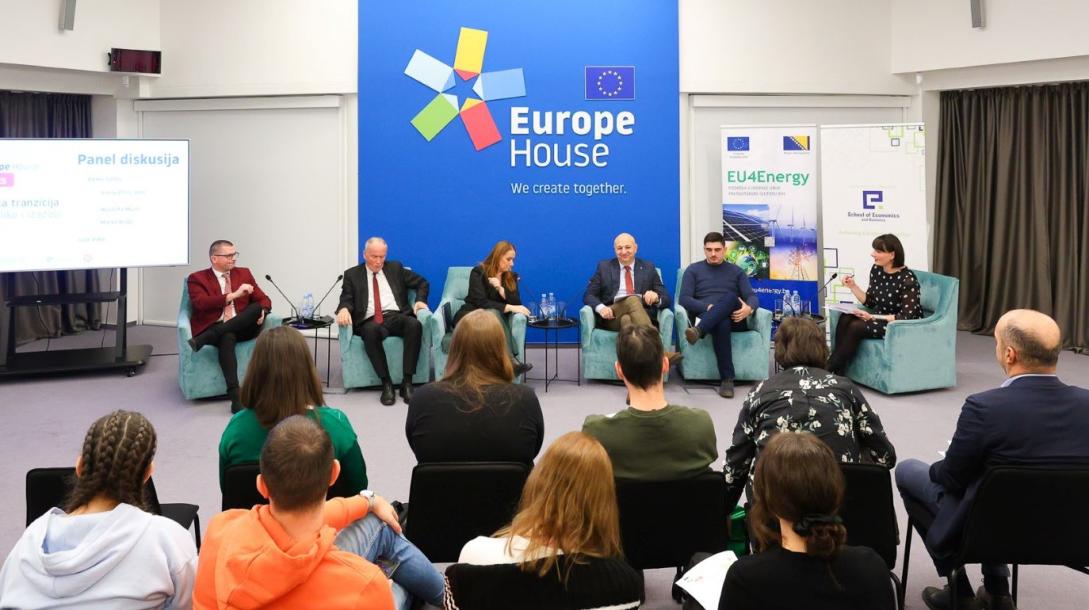Europe House Talks: Academic community and experts discuss energy transition in BiH

Europe House, in cooperation with the EU funded project EU4Energy, organised today an expert panel discussion on the challenges and opportunities of the energy transition process in Bosnia and Herzegovina. The aim of the event was to highlight the current situation in the sector, challenges facing the country as it progresses on its energy transition path as well as to familiarize students and the public with the complexities of the transition.
The discussion focused on presentation of activities of the two newly formed Centres for Sustainable Energy Transition at the Faculty of Economy of the University of Sarajevo and the Faculty of Engineering of the University of East Sarajevo which were formed within the EU4Energy project as an answer to the lacking capacities and knowledge transfer in the country. The Centres, coordinated by professors Amila Pilav-Velić and Goran Orašanin have so far established excellent cooperation with all relevant stakeholders and are continuing in their efforts to provide experise and knowledge excellence in the sector.
Stakeholders, including expert and academic community and the business sector, are taking part in a two day interactive workshops organised following the panel discussion. The workshops will serve as a platform to strengten the capacity of the Centres and complement the work of decision makers in implementing the necessary legislation and harmonizing it with the relevant EU policies. Development of creative ideas and exchange of good practices amongst partners in line with the best EU skills and opportunities remains in focus of work of the Centres, which has been recognized and underlined also by the distinguished speakers from the Ministry of Foreign Trade and Economic Relations, private sector and the academic community.
Energy transition is both a societal and economic transition, and Bosnia and Herzegovina is in its early stages compared to the member states countries of the European that have decades long experience. Transfer of knowledge, adoption of best practices and learning from the experience of others to suit the local context pose both challenges and opportunities that initiatives such as the Centres for Sustainable Energy Transition are being equiped to tackle.
Bosnia and Herzegovina, as signatory of the Green Agenda for the Western Balkans, and with continued technical and expert support provided by the European Union aims to achieve ambitious goals set by the European Union to become the first climate neutral continent by 2050. This goal, as well as numerous other obligations the country has agreed to implement pave the way to a carbon-neutral, sustainable and healthier future for all citizens.
